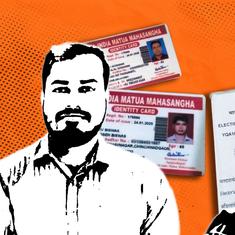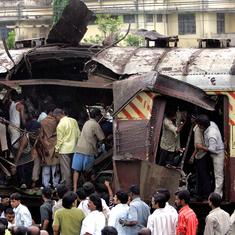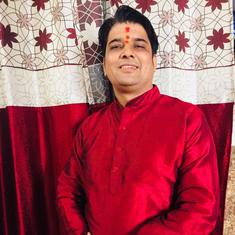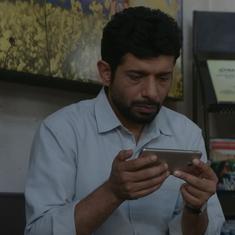“I have decided that I will now speak in Bangla even more frequently,” Mamata Banerjee declared at a Trinamool Congress protest in Kolkata on Wednesday. “I dare you to put me in a detention centre before arresting any other Bengali speakers.”
The three-term chief minister’s words were directed at the Bharatiya Janata Party, her principal political opponent in West Bengal. Banerjee rattled off a list of incidents from Maharashtra, Delhi and Chhattisgarh to claim that nearly 1,000 Bengalis were detained in BJP-ruled states under allegations that they were Bangladeshi citizens. She also highlighted BJP demands for a Bihar-style special intensive revision to remove so-called Bangladeshi voters from Bengal’s electoral rolls.
Banerjee’s statements made it clear that the Trinamool will counter the BJP’s citizenship politics by mounting a charged campaign to try and portray the BJP as “anti-Bengali”.
Notably, Trinamool Congress has focussed its messaging on Hindu refugee groups residing in West Bengal, such as Matuas and Rajbanshis, who have, of late, strongly supported the BJP. On Thursday, it flagged the arrest of five Matuas in Pune, Maharashtra. Earlier, on July 8, Banerjee had herself taken up the case of a Rajbanshi man, who was allegedly being harassed by Assam officials. Both Maharashtra and Assam are currently governed by the BJP.
Analysts and politicians – including those from the Bengal BJP – told Scroll that the Trinamool’s anti-Bengali charge could make things difficult for the saffron party.
Bengalis are being detained, branded as ‘outsiders’, and even deported while carrying valid documents in hand.
— All India Trinamool Congress (@AITCofficial) July 17, 2025
From NRC notices to map erasure, the attacks aren't random, they're deliberate.
It’s time we connect the dots. Watch this and understand what’s at stake. pic.twitter.com/K4Hk4uPGA0
A voter roll revision in Bengal?
Rahul Sinha, a senior member of the BJP’s state executive in West Bengal, said that Mamata Banerjee had come out so strongly because her “core voter” was under threat.
“There are one crore Bangladeshis registered as voters here,” he alleged, echoing similar claims made by West Bengal’s Leader of Opposition Suvendu Adhikari. “Mamata Banerjee is doing nothing to identify them, that is why other states have to take such steps.”
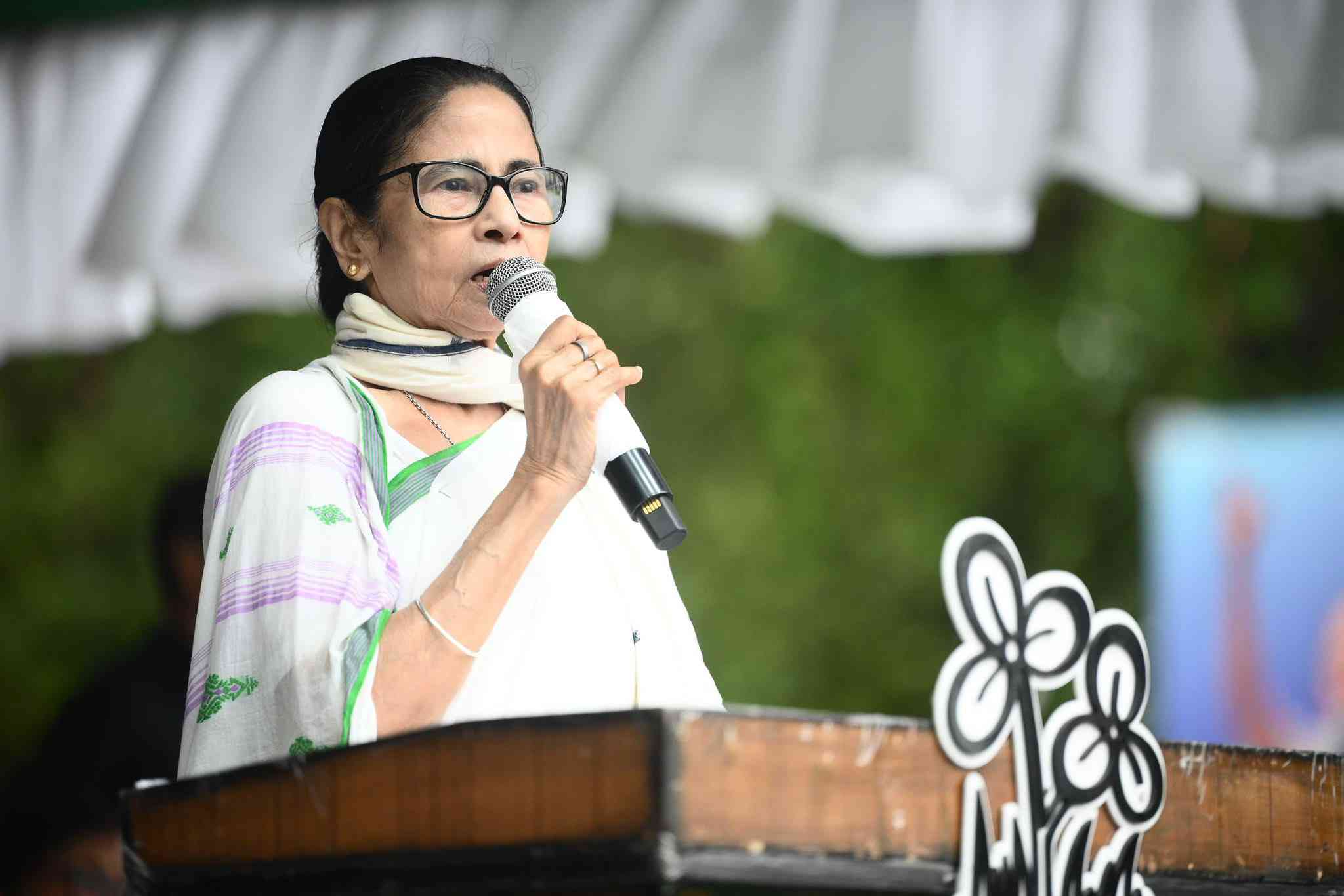
When asked if the expulsion drive could push Bengali Muslims further towards Trinamool Congress, Sinha added: “We don’t care about Muslims because we know they will not vote for us. We just have to ensure that Hindus are not affected.”
He demanded a revision of West Bengal’s voter lists along the lines of the ongoing exercise in Bihar.
“If the names of 10%-15% Bangladeshi Muslims are deleted from the voter list, Mamata’s reign will end,” Sinha said. “The more her voters are removed, the fewer additional votes we will need.”
He is not alone. Many top BJP politicians from West Bengal have made the same demand.
Sinha dismissed Trinamool’s outreach to Hindu refugee groups as fear-mongering and said his party would counter it by telling Hindu voters that only Bangladeshi Muslims were being deported.
‘Hindus will suffer more’
However, not all BJP leaders in Bengal are as confident as Sinha. A member of the party’s state executive told Scroll that voter list revision based on verifying citizenship would affect the party adversely.
“Not only the Muslims, Hindus will suffer more,” he said, requesting anonymity to discuss the issue candidly. “Hindus born after 1987 will also have to show that their parents were from here. They may all be Bangladeshi Hindus who came after 1970. If they are not allowed to vote, BJP will lose in West Bengal.”
The Citizenship Act recognises those born between July 1, 1987 and December 3, 2004 as Indian citizens by birth only if one of their parents was also a citizen of the country at that time. For those born after December 3, 2004, the law requires both parents to be Indian citizens.
West Bengal, like other Indian states bordering Bangladesh, saw successive waves of refugees coming in both before and after the 1971 war. The stipulations of the citizenship act, therefore, have long been a sore point for Bengali Hindu refugee communities.
The Modi government introduced an amendment in 2019 to remedy this grievance by creating a pathway to citizenship for non-Muslim refugees even if they had entered India illegally. But it dragged its feet on implementing the policy for over four years. When it did finally roll out the rules for people to apply, the process turned out to be a “mess”, according to the BJP leader quoted earlier.
“Many people are confused because they submitted a lot of documents but they have not got citizenship,” said a BJP MLA from North Bengal, who also requested not to be named. “There are many Hindus who have been here for a long time. Despite being an MLA, I don’t clearly know what I can do to help them.”
Given this backdrop, he worried that Trinamool would convince many voters that all refugees, and not just Muslims, were at risk.
“There are many people from Scheduled Castes and Scheduled Tribes living in this region,” the BJP MLA added. “Most of them came from East Bengal [now Bangladesh]. Trinamool is able to generate fear in their minds easily. We are trying to convince them but they are not fully satisfied with what we say.”
Mukut Mani Adhikari, a prominent Matua leader who left BJP to join Trinamool in 2024, said this was because refugees had lost trust in the saffron party. Describing Matuas, Rajbanshis and other refugee communities as the party’s backbone in the state, he decried it for supposedly betraying them.
“It is very unfortunate that BJP has plotted this scheme to snatch away the citizenship of those who formed its foundations in West Bengal,” the Ranaghat MLA said. “Whether it be the Citizenship Amendment Act or the attacks on Bengalis across the country, Mamata Banerjee is the only one who is fighting for them.”
Don’t you DARE call it an “assessment” or “verification” @BJP4India. This is a full-blown, targeted ASSAULT on Bengali-speaking Indians. You hate us because we come from a state that has rejected your filthy, divisive politics time and again.
— All India Trinamool Congress (@AITCofficial) July 17, 2025
5 innocent BENGALI-SPEAKING HINDUS… pic.twitter.com/X2MwJpKK57
Bengali identity politics
Dwaipayan Bhattacharyya, professor at the Centre for Political Studies in Jawaharlal Nehru University, was also skeptical of the efficacy of the BJP’s Bengal strategy.
The saffron party’s indifference to Muslims, who make up about 30% of the vote in the state, means that it would have to get more than half of the Hindu vote to win, he estimated. That would be difficult, Bhattacharyya explained, because Mamata Banerjee’s careful calibration of identity politics has boxed the BJP in.
“By building a Jagannath temple, raising a distinctly Bengali Hindu voice – invoking the plight of Hindus in Bangladesh and Bengali migrants elsewhere – she has blunted the BJP’s usual narrative,” he said. “It’s no longer easy to paint her as anti-Hindu or blindly pro-Muslim.”
The Jagannath temple he mentioned is located in Digha, a beach town in West Bengal, and was inaugurated on April 30 by the chief minister herself. The state government’s decision to bear the cost of its construction had led to controversy at the time.
Trinamool Congress has repeatedly used the temple as a means to woo Hindu Bengali voters since its doors opened for worshippers. It even distributed prasad to households across the state in June, imitating a Hindutva practice that came to light in the run-up to the Ram temple inauguration in Ayodhya last January.
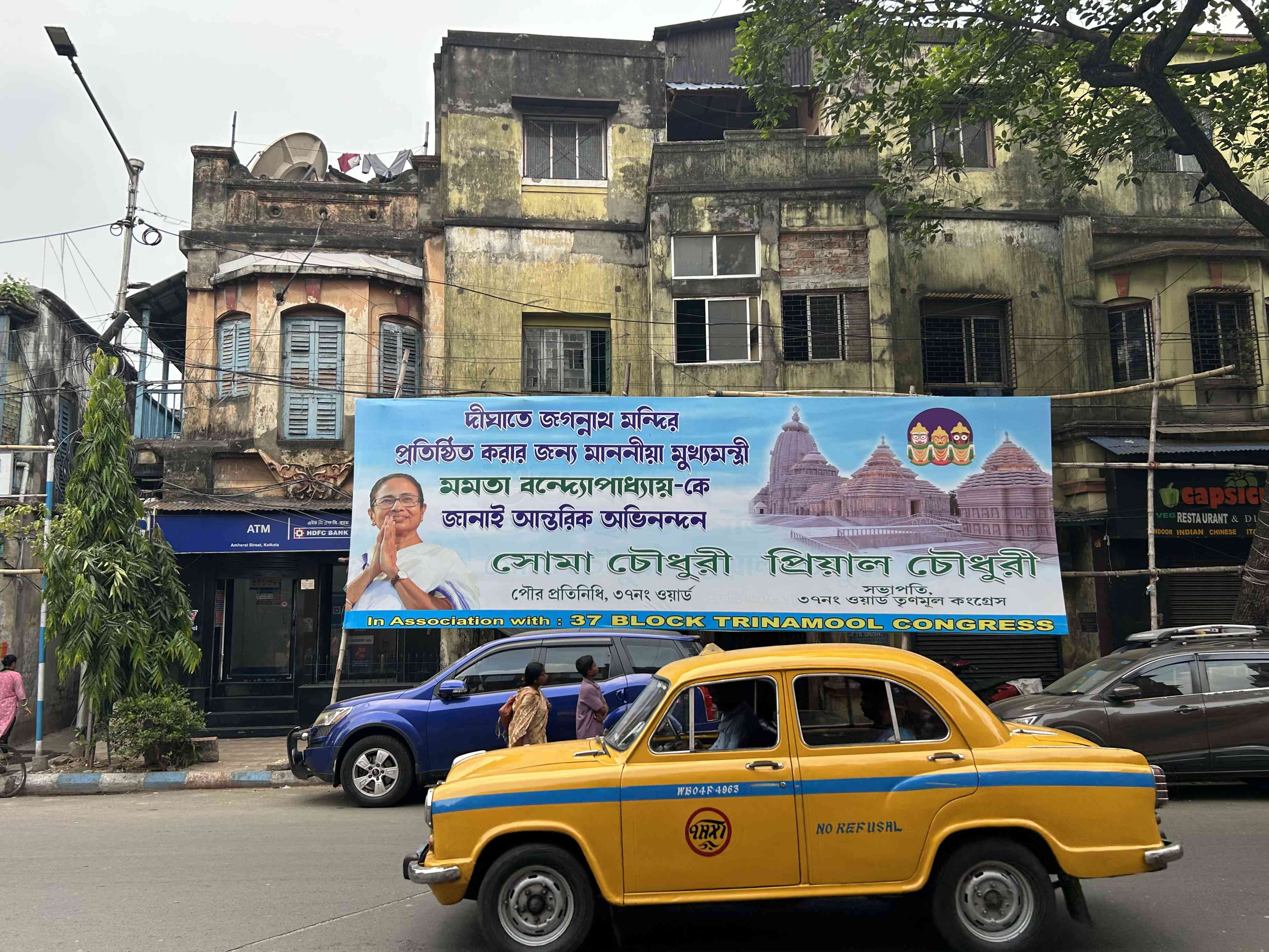
The Trinamool’s emphasis on Bengali identity as a way to counter the BJP’s Bangladeshi labelling will likely work because it has managed to present itself as the natural party of Bengalis, explained Kolkata-based political scientist Maidul Islam. Its particular form of Bengali assertion, he said, had found resonance in the state’s villages and small towns.
“The conditions for this kind of identity assertion were always there but the communists [who ruled the state from 1977-2011] balanced regional identity with class politics,” Islam contended. Mamata Banerjee, on the other hand, has freely used Bengali cultural pride to further her politics, he said.
“She started the Durga Puja carnival on Kolkata’s Red Road,” Islam added. “Many Trinamool leaders come from Puja committees. So the campaign to show Mamata as anti-Hindu may have some audience in Northern and Western India but it doesn’t have any takers in Bengal.”
Smt. @MamataOfficial graced the 2024 Durga Pujo Carnival at Red Road, celebrating the grand immersion procession with thousands of people.
— All India Trinamool Congress (@AITCofficial) October 15, 2024
The carnival marked the culmination of celebrations, with the people of Bengal already looking forward to Maa Durga’s return next year. pic.twitter.com/8dP8oEyAEI
Identity versus anti-incumbency
However, Mohammed Salim, West Bengal secretary of the Communist Party of India (Marxist), questioned how effective the Trinamool’s Bengali identity push could be in the face of rising anti-incumbency. The outrage from Mamata Banerjee over Assam officials allegedly harassing a Rajabanshi was ironic, he argued, since it was her police which went to his doorstep six months earlier.
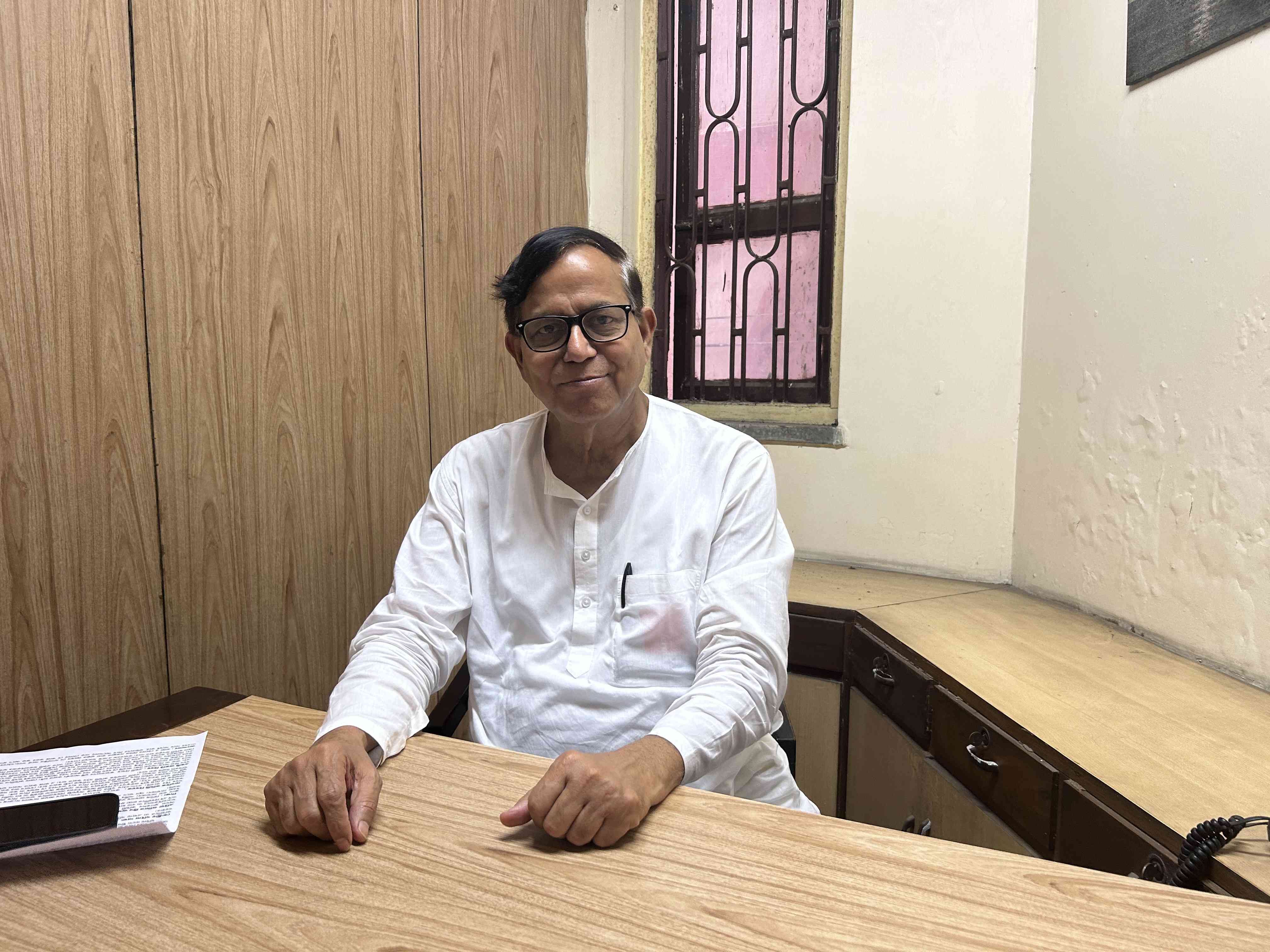
“She is playing to the gallery now,” Salim said. “This is an emotive issue. Anti-incumbency is so high here that if people talk about day-to-day issues such as women’s safety, education and health, Trinamool will be at the receiving end of public anger. They want to avoid that.”


